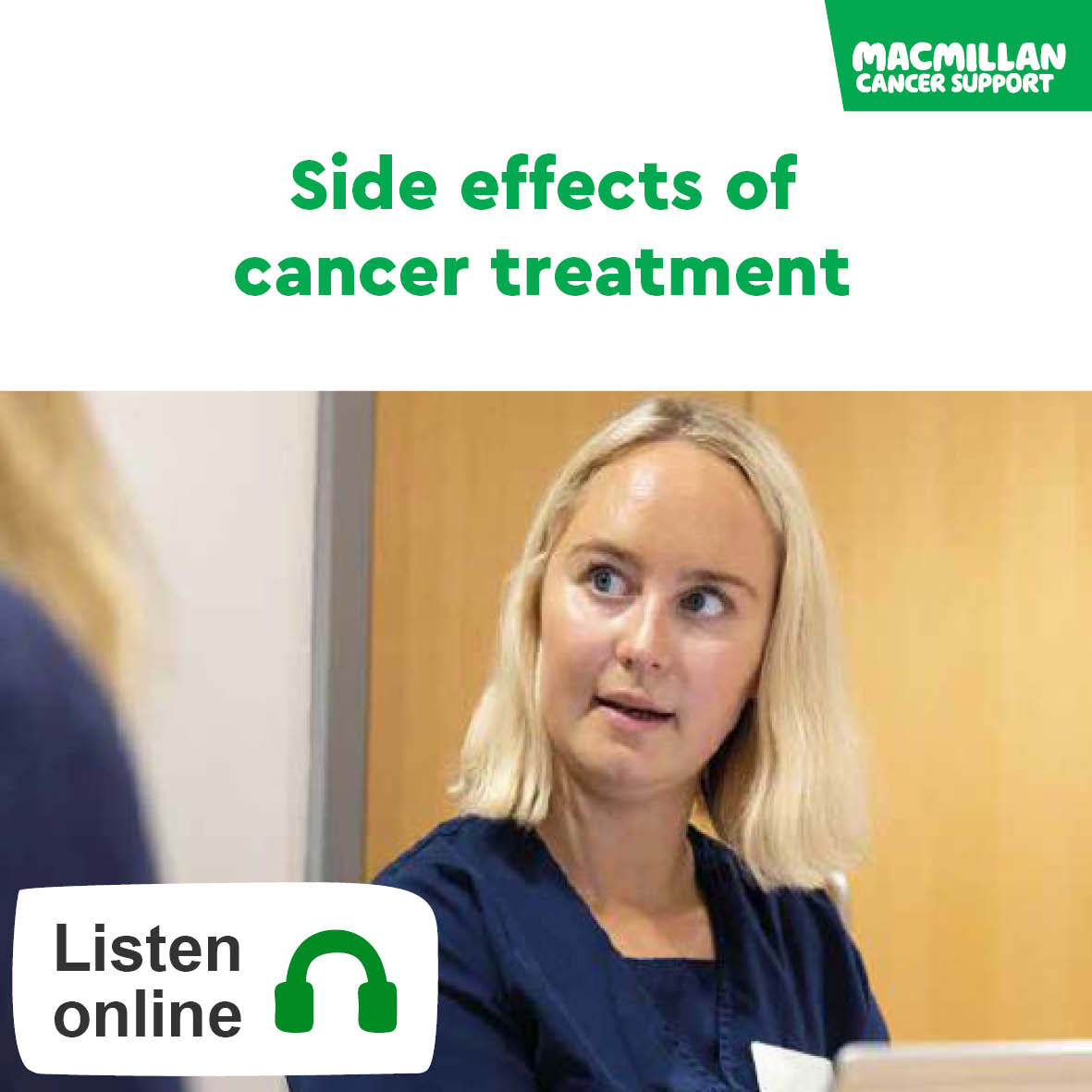Targeted therapy for head and neck cancer
Targeted therapy drugs are used to treat locally advanced or advanced head and neck cancer. Drugs that help your immune system to find and attack cancer cells are also called immunotherapy drugs.
Targeted therapy drugs for head and neck cancer
Targeted therapy drugs target something in or around the cancer cell that helps it grow and survive. Cetuximab (Erbitux®) is a targeted therapy that is sometimes used to treat head and neck cancer. It belongs to a group of cancer drugs called monoclonal antibodies. They target specific proteins (receptors) on the surface of cells.
Cetuximab is sometimes given with radiotherapy if chemoradiation is not suitable for you. Your nurse will give you cetuximab as a drip (infusion) into a vein. You have your first treatment before radiotherapy starts. You have 1 treatment a week during your course of radiotherapy.
Cetuximab may also be given with the chemotherapy drugs cisplatin or carboplatin. This treatment is used to treat some cancers that started in the mouth area but have spread or come back.
Side effects of cetuximab
The side effects of cetuximab are usually mild. They include:
- flu-like symptoms while you are having the drip
- a skin rash
- sore mouth and nose
- feeling tired
- feeling sick
- diarrhoea.
We have more information about the side effects of cetuximab.
Immunotherapy drugs for head and neck cancer
Immunotherapy drugs help the immune system to find and attack the cancer cells. The immunotherapy drugs used to treat head and neck cancer are:
They target and block a protein (receptor) called PD-L1. These drugs are usually given on their own. You have them as a drip (infusion) into a vein. A nurse gives them to you in the chemotherapy day unit.
You may have pembrolizumab:
- if the cancer has spread to other parts of the body and you have had no other treatment
- if the cancer comes back and it cannot be removed with surgery.
Tests are done on the cancer cells first, to see if pembrolizumab is likely to be helpful for you. If it works well and you have no serious side effects, it can be given for up to 2 years.
You may have nivolumab:
- if the cancer comes back
- if the cancer was already advanced and gets worse within 6 months of you having chemotherapy with cisplatin or carboplatin.
Side effects of immunotherapy drugs
Some of the common side effects of immunotherapy drugs are:
- diarrhoea
- tiredness
- a skin rash
- thyroid problems.
Immunotherapy drugs can sometimes make the immune system attack other parts of the body. This is not common, but it can cause serious side effects in areas such as:
- the lungs
- other organs, like the liver or bowel
- glands that make certain hormones.
If you have immune side effects, you may need to stop treatment. You may need steroids for a short time to suppress your immune system. Rarely, these side effects can happen up to 2 years after treatment finishes. If you think you have any of these side effects, contact your cancer doctor or nurse straight away.
Your doctor or nurse will explain all these side effects to you.
You can read more information about the side effects of pembrolizumab or nivolumab.
Booklets and resources
About our information
-
References
Below is a sample of the sources used in our head and neck cancer information. If you would like more information about the sources we use, please contact us at cancerinformationteam@macmillan.org.uk
Machiels J.-P, Leemans C. R. et al. Squamous cell carcinoma of the oral cavity, larynx, oropharynx and hypopharynx. EHNS- ESMO-ESTRO Clinical Practice Guidelines for diagnosis, treatment and follow-up. Annals of Oncology, 2020. Volume 31, Issue 11, Pages 1462-1475.
National Institute for Health and Care Excellence (NICE). Cancer of the upper aerodigestive tract: assessment and management in people aged 16 and over. NICE guideline NG36 2016 (updated 2018).
-
Reviewers
This information has been written, revised and edited by Macmillan Cancer Support’s Cancer Information Development team. It has been reviewed by expert medical and health professionals and people living with cancer. It has been approved by Senior Medical Editor, Dr Chris Alcock, Consultant Clinical Oncologist.
Our cancer information has been awarded the PIF TICK. Created by the Patient Information Forum, this quality mark shows we meet PIF’s 10 criteria for trustworthy health information.
Date reviewed
This content is currently being reviewed. New information will be coming soon.

Our cancer information meets the PIF TICK quality mark.
This means it is easy to use, up-to-date and based on the latest evidence. Learn more about how we produce our information.





